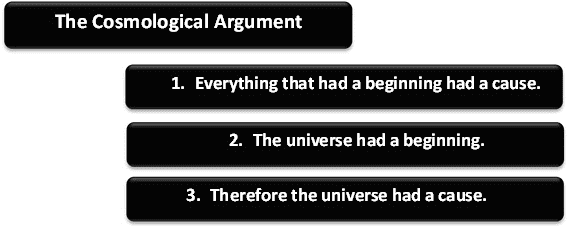
National Association of Christian Ministers Summary Series: Theology

The Kalam argument (aka the uncaused cause) is a philosophical argument for the existence of God. The argument is based on the concept of causality, and it proceeds as follows:
1. Everything that begins to exist has a cause.
2. The universe began to exist.
3. Therefore, the universe has a cause.
The argument is often elaborated upon by adding further premises and conclusions, such as:
4. The cause of the universe must be uncaused, eternal, and immaterial.
5. There is only one such cause, and that cause is God.
The Kalam argument has been the subject of much debate and criticism, with objections raised against each of its premises and conclusions. Some philosophers have argued, for example, that the concept of causality is not applicable to the universe as a whole, or that the idea of an uncaused cause is incoherent. Nonetheless, the argument remains a popular and widely discussed topic in the philosophy of religion.




